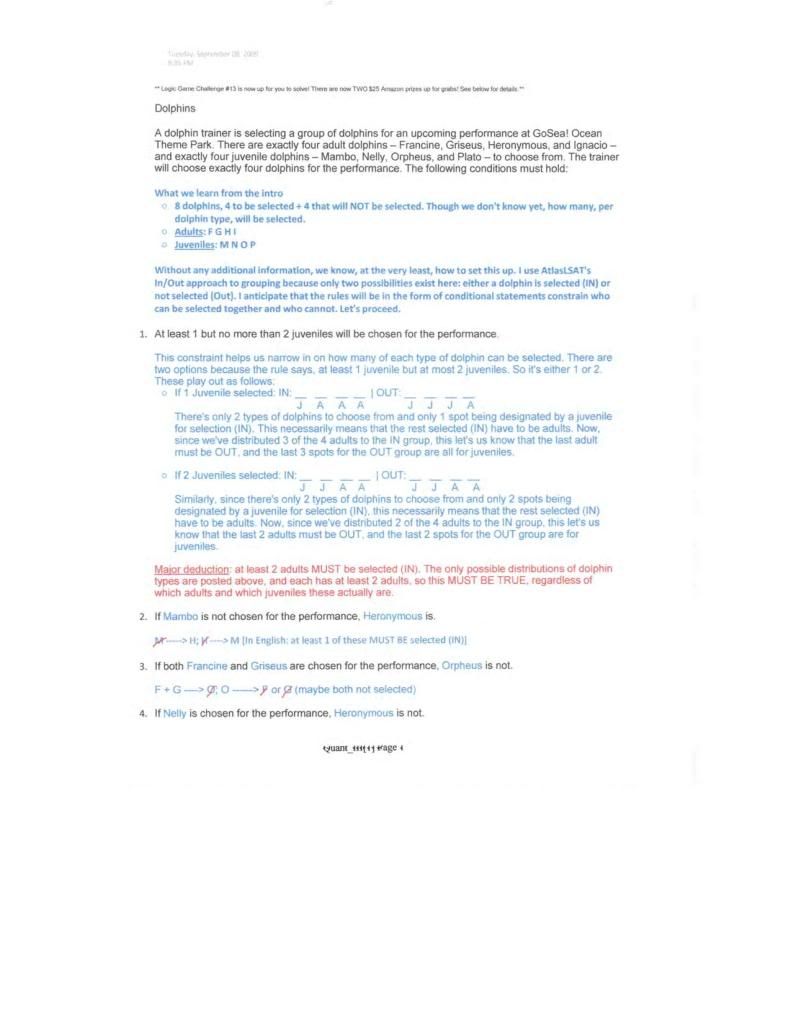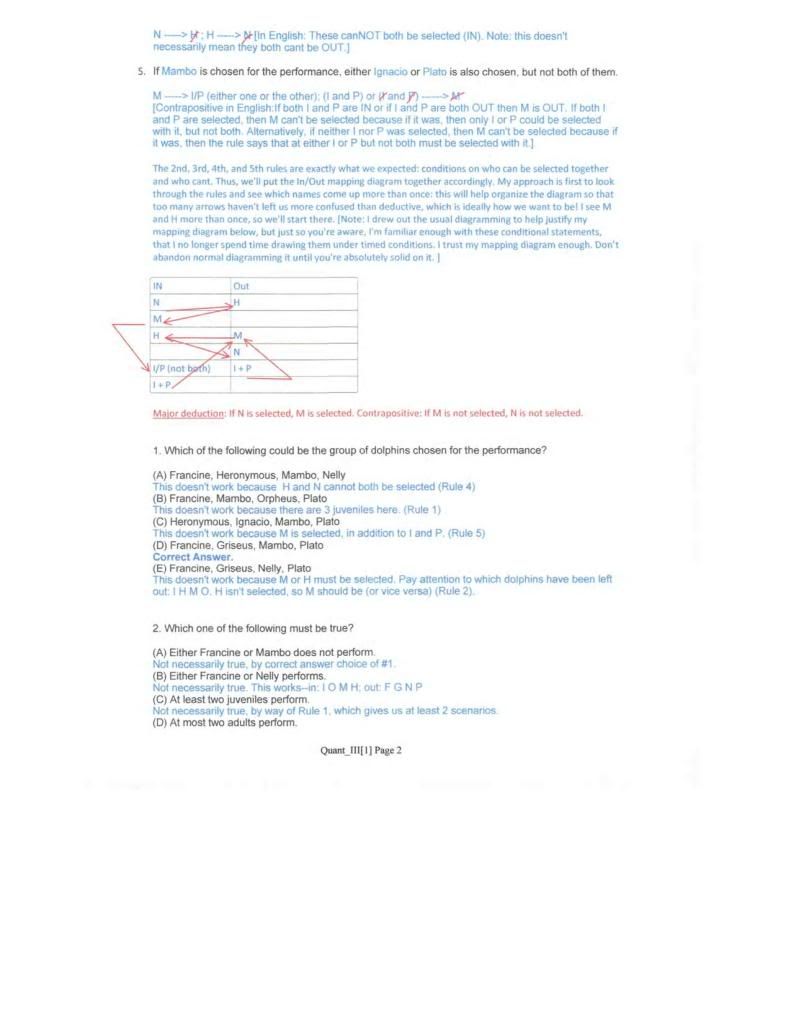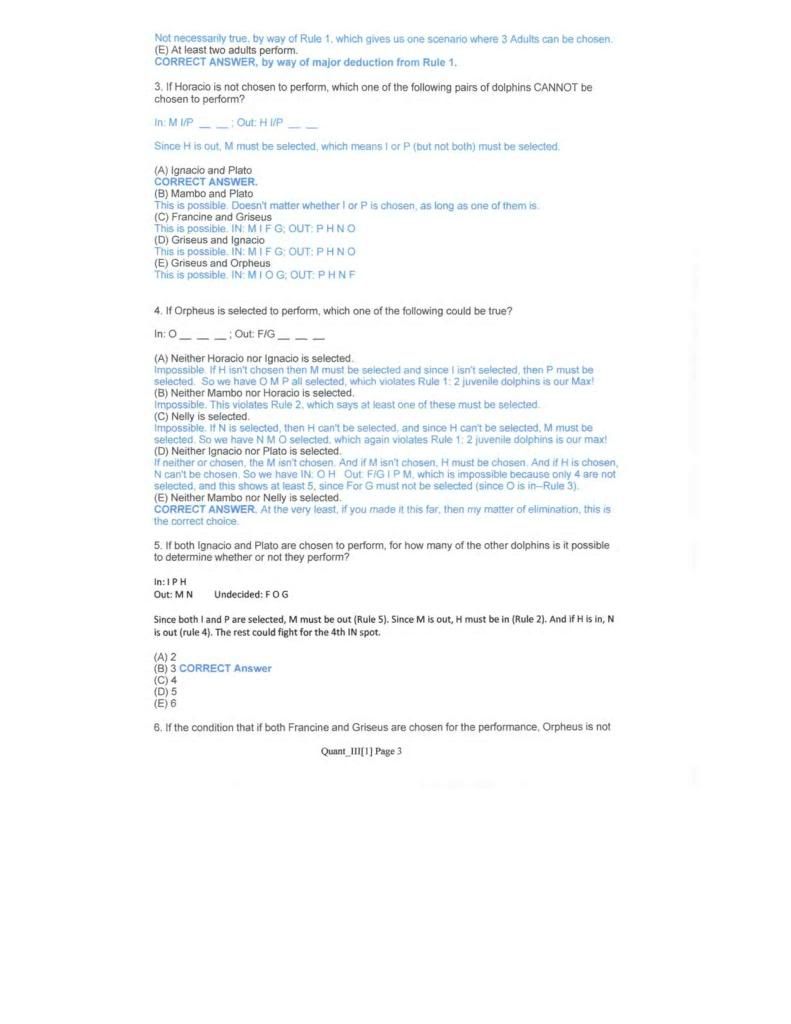asood Wrote:6. The question is unclear. if you say Orpheus performs only if Francis and Griseus do not perform (as in both together don't perform) then both A and E can be right, by taking the same combination in both - F I O M (i am using the first letter of the name only) and thus there are 2 right answers.
If you take the other case, that either of them should not perform for O to perform then anyways 4 options become invalid and then C is correct.
With regard to you FIOM reference, You came up with 2 scenarios that definitely don't work, and you had to violate a rule in order to get there. You don't leave open the possibility that there is still a scenario that does work for both A and E, namely the ones that I posted:
A)
IN: HMPG
OUT: FION
E)
In:HGIP
Out: FOMN
If you're looking for something impossible, your best approach is to look for a way to make what you're given possible, so you can eliminate it. It's not enough to violate a rule in order to come up with a way to make it not work, it has to be impossible as is.
For A), you start off with:
IN:
Out: F I O
G has to be IN because of Rule 4 which prohibits H and N being selected together. If G were OUT, then H and N would be forced into selection. So we have:
IN: G H/N __ __
Out: F I O H/N
And this leaves M and P for selection:
IN: G H/N M P
Out: F I O H/N
For E), you start off with
In:
Out: F O M
Since M is out, H must be in (Rule 2). So we have:
In: H
Out: F O M
Since H is in, N must be out (Rule 4). So we have:
In: H
Out: F O M N
This leaves I G and P for selection:
In: H I G P
Out: F O M N
With regard to your alternative interpretation: Even with your interpretation, C is still possible:
In: O M I H
Out: G P N F and if it's possible, then it is, by definition not the choice we're looking for.










)






